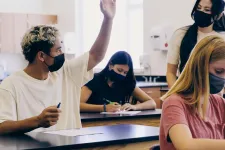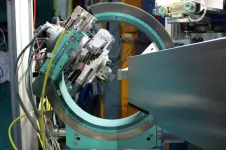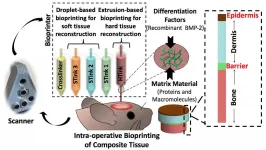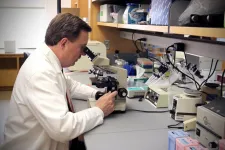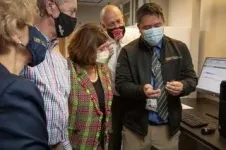SAN ANTONIO (April 27, 2021) - When the world was coming to grips with an emerging global pandemic a year ago, scientists at Texas Biomedical Research Institute sprang into action. The rhesus macaques at the Southwest National Primate Research Center (SNPRC) at Texas Biomed were quickly validated as models for studying vaccines designed to protect humans against SARS-CoV-2, the virus that causes COVID-19. The Pfizer-BioNTech COVID-19 vaccine was tested in this model at the Institute and has now been given to millions of people around the world.
"It feels great to have contributed to the development of this important vaccine," said Deepak Kaushal, Ph.D., Professor and the Director of the SNPRC. "This is one circumstance where we helped develop a vaccine within months of the emergence of this new disease. The vaccine has been shown to be highly effective in protecting against COVID-19. As long as everyone in the U.S. who can take a vaccine does so over the next few months, I think we could shut the door on this pandemic before more variants arise."
The work performed by dozens of scientists at Pfizer, BioNTech, Texas Biomed, the SNPRC and scientific partners around the world from April to July of 2020 is now published in the scientific journal Nature. In the paper titled "Immunogenic BNT162b vaccines protect rhesus macaques from SARS-CoV-2" published on Feb. 1, 2021, scientists noted that the vaccine candidate tested for Pfizer "protected the lower respiratory tract from the presence of viral RNA and with no evidence of disease enhancement."
"Texas Biomed and SNPRC have the resources and expertise necessary to support this type of work, and as the vaccine rollout continues and we continue to hear about vaccine hesitancy, we believe it is important to share how vaccines are developed," explained Dr. Larry Schlesinger, President/CEO of Texas Biomed. "While science moved quickly in a time of great global need, these vaccines - whether they be Pfizer, Moderna or any of the others that are authorized by the FDA for emergency use - they all undergo rigorous development, testing and review by regulatory authorities before roll out to the public. Preclinical testing is a critical step in the scientific process."
SARS-CoV-2 is spread when droplet particles containing the virus spread from one person to another by coughing, sneezing, talking or singing. The virus usually enters through the nose but can then travel into the lower respiratory tract of the lungs.
"The lungs become full of water," Kaushal explained. "Patients develop pneumonia and other kinds of lung abnormalities. This is what leads to the use of ventilators and subsequently bad outcomes, including death. By reducing or eliminating the virus from the lower respiratory tract, we can markedly reduce the severe effects of the disease."
During the three-month experiment, scientists used rhesus macaques to test two of the Pfizer-BioNTech vaccine candidates. Although macaques do not succumb to the disease, as reported in a study published in Nature Microbiology last year, they are very effective at replicating disease. These nonhuman primates share 93% of human DNA, making them excellent models for the study of infectious diseases.
"There is no nonhuman primate model yet that is exceptional for COVID-19," Kaushal explained. "None of the monkey species that have been studied develop end-stage or late-stage COVID, equivalent to the severe disease that is seen in humans. However, rhesus macaques are our best-known model for imaging of the lungs using PET/CT scanning. More importantly, the immunology of this species is very well documented."
"Our job was to test two messenger RNA vaccine constructs in the rhesus macaques," Kaushal said. "While both were similar in their effectiveness in our studies, Pfizer and BioNTech chose BNT162b2."
The effect of the two vaccine candidates was tested not only by measuring viral levels, but also with state-of-the-art imaging modalities and blood tests. The virus used in testing was the Seattle strain that emerged in the United States in early 2020. The sample was provided by Biomedical Engineering Institute Resources Repository, part of the National Institutes of Health. The virus was produced in a lab at Texas Biomed by viral specialist Ricardo Carrion, Ph.D., Professor and Director of Maximum Containment Contract Research.
"The messenger RNA vaccine developers were far ahead of most other competitors," Kaushal stated. "They had studied these types of viruses earlier with Middle East Respiratory Syndrome (MERS) a decade ago and SARS-1 which caused an outbreak centered in China 20 years ago."
The experience with these vaccine platforms beginning in the 1990s set the stage for the speed with which this vaccine was developed. Rapid therapy and vaccine development has been aided by the worldwide effort of scientists and resources who have made this crisis their top priority.
Texas Biomed to host Virtual Global Health Symposium On April 29-30, 2021, Texas Biomed is teaming up with other world leaders in infectious disease to host a Virtual Global Health Symposium. As an independent nonprofit infectious disease research institute, Texas Biomed is focused on bringing together a range of thought leaders involved in global health, research, sustainability and policy.
Among the more than 50 speakers during ten session, Kaushal will be hosting a discussion with Isis Kanevsky, Ph.D., Director Bacterial Vaccines and pre-clinical research models at Pfizer. The two will discuss the research published in Nature and the implications for the current pandemic and diseases on the horizon. The timely event will provide an exclusive inside look at the creation of the COVID vaccine from the perspective of Pfizer and Texas Biomed. For more information about the upcoming event, click here.
"We train for moments like these," Kaushal said. "We may have fatigue in the sense that once this pandemic is under better control with more and more people vaccinated, we will want to go back to 'normal' and not worry about the next pandemic. However, I would argue that the next pandemic may not be ten years away. It may only be five years away. We must stay vigilant and informed, and be more prepared for the next infectious disease threat that comes our way."
INFORMATION:
*The Pfizer-BioNTech COVID-19 Vaccine, BNT162b2, has not been approved or licensed by the U.S. Food and Drug Administration (FDA), but has been authorized for emergency use by the FDA under an Emergency Use Authorization (EUA) to prevent Coronavirus Disease 2019 (COVID-19) for use in individuals 16 years of age and older. The emergency use of this product is only authorized for the duration of the declaration that circumstances exist justifying the authorization of emergency use of the medical product under Section 564 (b) (1) of the FD&C Act unless the declaration is terminated or authorization revoked sooner. Please see Emergency Use Authorization (EUA) Fact Sheet for Healthcare Providers Administering Vaccine (Vaccination Providers) including Full EUA Prescribing Information available at http://www.cvdvaccine.com.
About Texas Biomed
Texas Biomed is one of the world's leading independent biomedical research institutions dedicated to eradicating infection and advancing health worldwide through innovative biomedical research. Texas Biomed partners with researchers and institutions around the world to develop vaccines and therapeutics against viral pathogens causing AIDS, hepatitis, hemorrhagic fever, tuberculosis and parasitic diseases responsible for malaria and schistosomiasis disease. The Institute has programs in host-pathogen interaction, disease intervention and prevention and population health to understand the links between infectious diseases and other diseases such as aging, cardiovascular disease, diabetes and obesity. For more information on Texas Biomed, go to http://www.TxBiomed.org.
